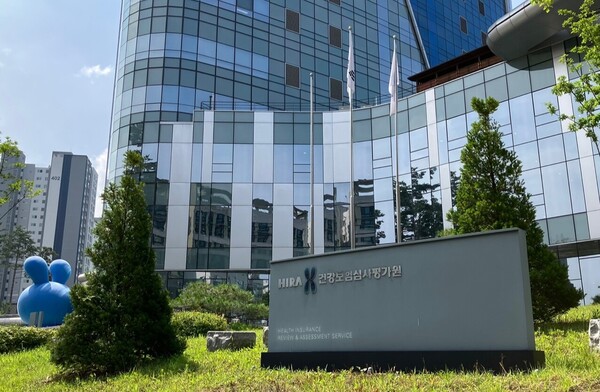Lilly's Retevmo (selpercatinib) and Janssen's Rybrevant (amivantamab) have cleared the Cancer Disease Review Committee (CDRC) hurdle, signaling a green light for their entry into the reimbursement list.
AstraZeneca's Lynparza (olaparib) passed the review for expanding its reimbursement criteria to include prostate cancer and ovarian cancer indications.
On Wednesday, the Health Insurance Review and Assessment Service (HIRA) held its seventh CDRC meeting for 2025 and announced the review results.

The meeting reviewed four agenda items: two applications for new drug coverage decisions—Retevmo and Rybrevant—and two applications for expanded coverage criteria—Lynparza and Iclusig (ponatinib).
The RET (rearranged during transfection) inhibitor Retevmo cleared the CDRC hurdle. In 2023, Retevmo passed both the CDRC and the Pharmaceutical Reimbursement Evaluation Committee (PREC) during its second reimbursement attempt; however, it failed to secure coverage after negotiations with the National Health Insurance Service (NHIS) broke down.
Retevmo secured reimbursement criteria for all three indications: locally advanced or metastatic RET fusion-positive non-small cell lung cancer (NSCLC); advanced or metastatic RET-mutated medullary thyroid carcinoma (MTC) requiring systemic therapy, and RET fusion-positive thyroid carcinoma requiring systemic therapy in patients with prior sorafenib or lenvatinib treatment experience.
On the other hand, the EGFR/MET dual-specific antibody Rybrevant barely cleared the first hurdle for reimbursement, with only one of its four submitted indications passing the CDRC.
Rybrevant is used for: first-line treatment in combination with carboplatin and pemetrexed for patients with locally advanced or metastatic non-small cell lung cancer (NSCLC) harboring EGFR exon 20 insertion mutations; monotherapy for second-line or later treatment; combination therapy with lazertinib (Leclaza in trademark name) for first-line treatment of patients with locally advanced or metastatic NSCLC harboring EGFR exon 19 deletions or exon 21 (L858R) substitution mutations; and combination therapy with carboplatin and pemetrexed for second-line or later treatment.
However, the indication approved by the CDRC this time is only “second-line or later treatment for EGFR exon 20 insertion mutation NSCLC.”
This indication was approved based on results from the CHRYSALIS study, an early-phase clinical trial. This contrasts with the other three indications that failed to meet reimbursement criteria, which demonstrated survival benefits through global phase 3 clinical trials -- PAPILLON, MARIPOSA, and MARIPOSA-2.
Considering the CDRC's primary goal of evaluating clinical utility, this review outcome is potentially controversial.
For Rybrevant, whose monthly treatment cost is approximately 10 million won ($7,190), it would be reasonable to apply reimbursement starting with indications where clinical efficacy is clearly proven. However, the opposite decision was made. This has prompted criticism that financial impact, rather than clinical efficacy, may have been the key factor in the CDRC’s decision.
For the PARP inhibitor Lynparza, the expansion of reimbursement criteria for prostate and ovarian cancer indications was deemed valid.
Specifically, it was recognized as: monotherapy for patients with BRCA-mutated metastatic castration-resistant prostate cancer (mCRPC) who have experienced disease progression after prior treatment with a novel hormonal therapy; combination therapy with abiraterone and prednisolone for patients with mCRPC who have not received prior chemotherapy; maintenance therapy for patients with high-grade epithelial ovarian, fallopian tube, or primary peritoneal cancer who are homologous recombination deficiency (HRD)-positive and who responded to first-line platinum-based chemotherapy combined with bevacizumab.
In 2022, Lynparza also failed to expand coverage after passing the CDRC for its prostate cancer indication, as negotiations with HIRA broke down at the PREC’s subcommittee stage.
Retevmo, Rybrevant, and Lynparza will now undergo procedures, including review by the PREC, price negotiations with the NHIS, and approval by the Health Insurance Policy Deliberation Committee (HIPDC) under the Ministry of Health and Welfare.
Meanwhile, Otsuka Pharmaceutical requested expanded coverage for Iclusig as a combination therapy with chemotherapy for newly diagnosed Philadelphia chromosome-positive acute lymphoblastic leukemia (Ph+ ALL) patients; however, it failed to clear the CDRC hurdle.

